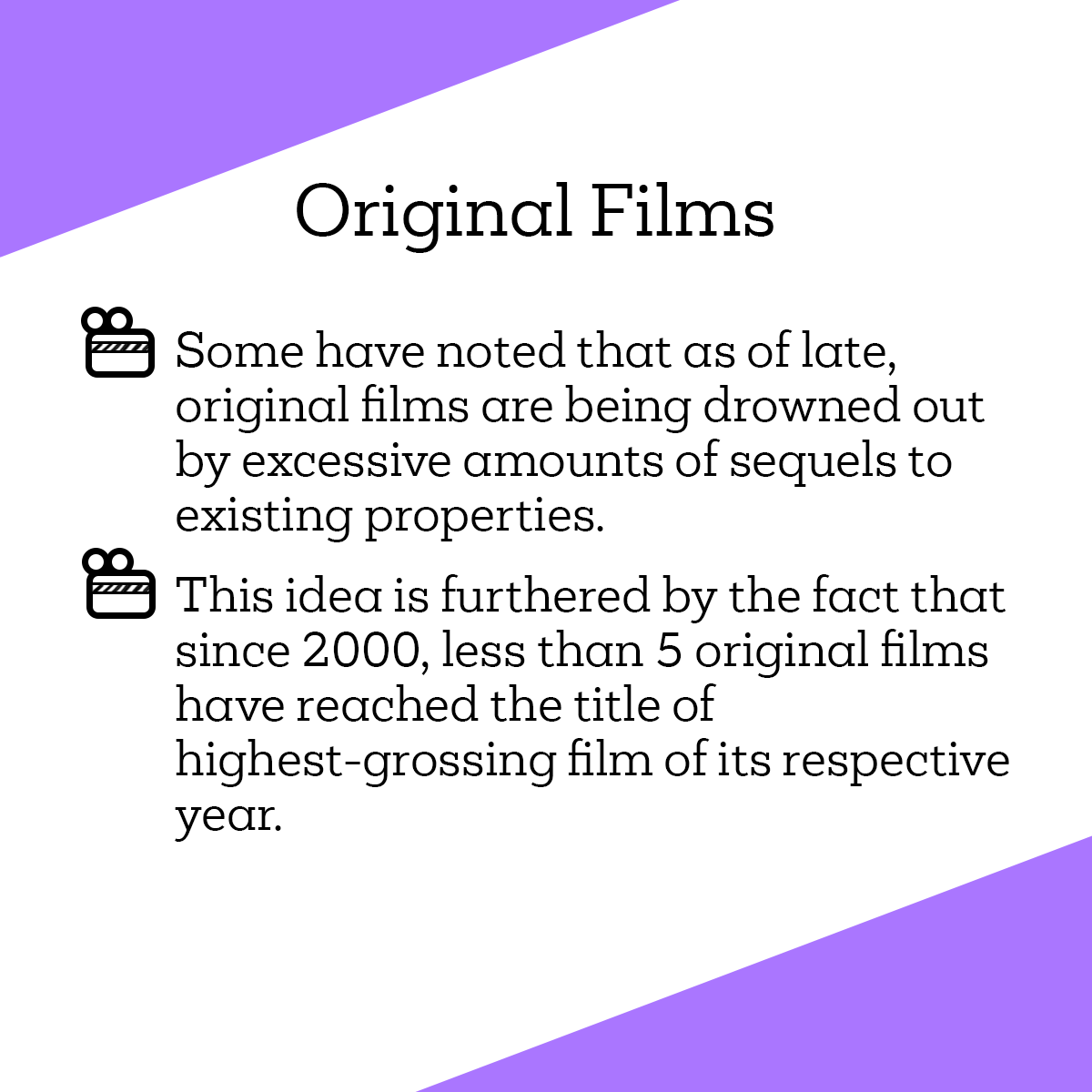By Jackson Gianchetta
Sequels have historically been well received, allowing fans to experience their favorite characters in brand-new ways while also generating extra profit for the creators of the piece. The best sequels expand on the world, characters, and themes introduced in the first film and set out to use the framework already built to create new projects even better than the originals. Hollywood, however, has become increasingly reliant on sequels and established franchises to drive profits for their blockbuster films. In fact, only one of the ten highest annual grossing films from any of the previous five years, Christopher Nolan’s Tenet, has been a film based off of a new intellectual property.
In light of this, some critics have panned Hollywood for lazy and uninspired sequels, arguing that some sequels aim to sell tickets at the box office and subscriptions to streaming services rather than to provide an enriching experience that challenges audiences. Director Martin Scorsese, in a 2019 “New York Times” Op-Ed, describes this more recent shift in attitude as “the gradual but steady elimination of risk,” further explaining that “many films today are perfect products manufactured for immediate consumption.”
Top 5 Highest Sequel Grosses (IMDB Rating): Avengers: Endgame, Star Wars Episode VII – The Force Awakens, Avenger: Infinity War, Spiderman: No Way Home, Jurassic World
While Hollywood continued its chase for higher profits, it has become reliant on sequels not out of a lack of creativity, but rather a need for cheap, marketable content that serves as a safe investment. Sequels provide many benefits for movie studios that original content cannot match. For one, sequels are significantly easier to market to mass audiences. With original content, advertisers must sell people on the premise of a film to convince them to spend their money. However, when marketing a sequel, audiences tend to already have a connection with the franchise. This is partially why sequels tend to draw higher than an original film, regardless of how the sequel is critically received.
This success, regardless of the film’s overall quality, is why sequels have become so prominent in modern Hollywood. For major studios, investing in large-budget sequel projects where positive returns are extremely likely, it makes more sense than risking large amounts of capital on new projects that audiences have no pre-existing connection with, and thus could potentially flop. In the post-COVID-19 era of film production, in which streaming is the primary way media is consumed, major studios are making less profit on major new projects than ever before. This loss of revenue makes it hard for already struggling studios to justify risking the tens or even hundreds of millions of dollars major new projects cause on anything that isn’t guaranteed.
How a reliance on sequels affects Hollywood in the long-term remains in question. It seems unlikely that major movie studios will be able to continue pushing out sequels at the current pace that they are producing them. Eventually, studios will run out of content and audiences will grow tired of a lack of new ideas. Blockbuster films in general are grossing lower on average now than five to ten years ago. As a negative sentiment surrounding uninspired sequels continues to grow, it seems like an overreliance on established content may hurt Hollywood in the long-term. A lack of large-budget original content means that many of the greatest films of the past few decades likely would not be able to be produced in today’s climate. It also means that many of the most talented filmmakers in the industry are not receiving the chances they would have had a few decades ago. Many of these talented, but relatively unknown individuals are forced to either compromise their craft and work on projects with a high budget but little in the way of quality or to hustle on the independent scene where they have more creative control but may struggle to make ends meet. Hollywood must strike a balance between ensuring profit and remaining innovative. If studios don’t find this balance, they risk creative setbacks that could leave the future of the industry in jeopardy.





